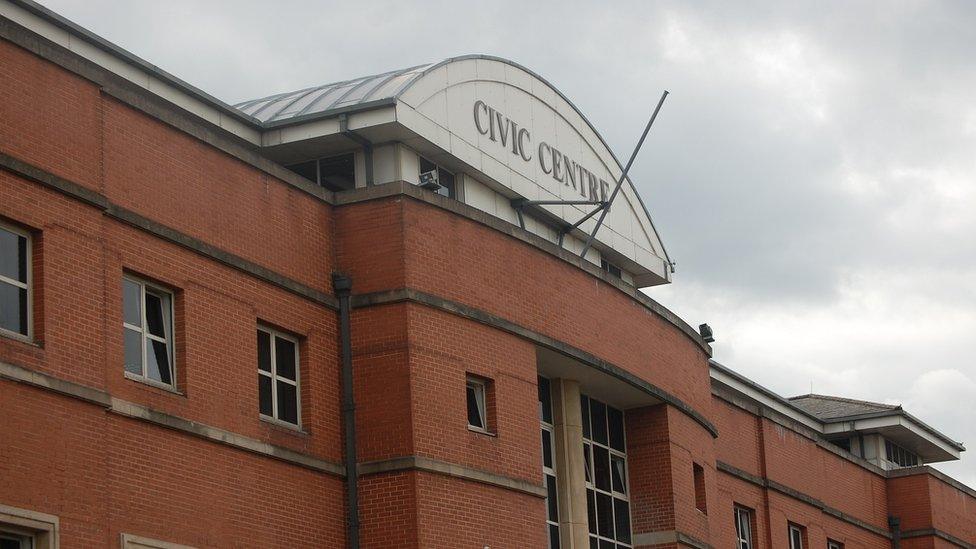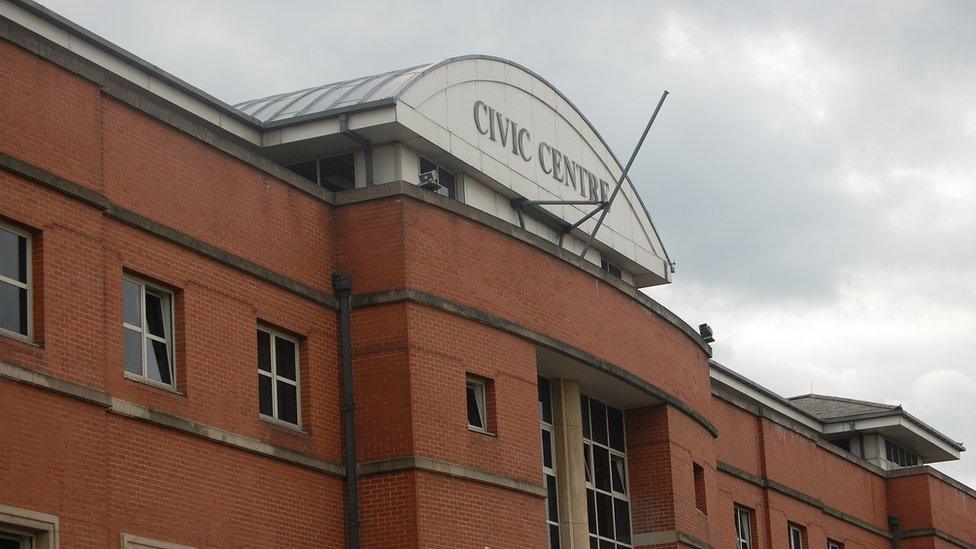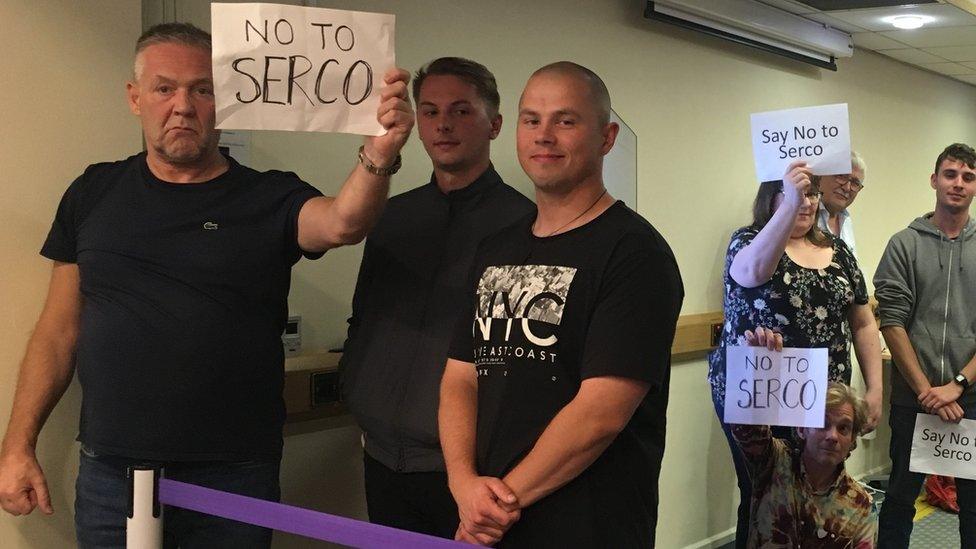Stoke-on-Trent: Council loses asylum seeker injunction bid
- Published

The council said Stoke-on-Trent had a long tradition of supporting asylum seekers
A city council has lost a bid to extend a High Court injunction stopping asylum seekers from being housed in a hotel.
The Home Office wanted to use the Stoke-on-Trent hotel as accommodation, but the council said it was a breach of planning rules.
It had been granted a temporary injunction to prevent any asylum seekers from being housed there, but a court ended it on Wednesday.
The council said it was "disappointed" by the decision.
The High Court heard the Home Office planned to block book the hotel's 88 rooms, add a security presence, and prevent members of the public from using the site.
But Jake Thorold, for the council, told the court exclusively housing asylum seekers would mean a "material change of use" of the hotel and was a breach of planning controls.
In written submissions, Mr Thorold said claims the council was motivated to obtain an injunction because of the identity of the proposed occupants were "categorically untrue".
Mr Justice Linden said he could not make a ruling on the council's motivation, adding: "I am not at the moment convinced that the motivation is a relevant consideration of this case."
Saira Kabir Sheikh KC, for the hotel that would house the asylum seekers, disagreed that the hotel use itself was changed based on "the identities of who is walking through the door".
'Weak application'
The city council was granted the order against the hotel's owner and Serco last month.
Paul Brown KC, for Serco Limited, told the court on Wednesday the identities of who will be housed in the hotel were not known until up to 24 hours before.
He added that "we are talking about people who are fleeing persecution, sometimes torture, sometimes families with small children".
Mr Brown also confirmed some would be from Manston, the overcrowded processing centre in Kent, that has been housing up to 4,000 people with a recommended capacity of over 1,000.
But dismissing the injunction, Mr Justice Linden described the council's application as "weak" and said it was "not a case where any changes to the building, the fabric of the hotel or the land on which it is situated".
He added: "I take into account the perspective of the citizens of Stoke-on-Trent but hope they would appreciate the potential suffering of the asylum seekers is no small matter when one considers the circumstances in which they have come."
A council spokesperson said: "While we review our legal position in the light of the judgement, the reality is that we have already been working with a number of other public services for the last 10 days, carrying out contingency planning prior to the court hearing.
"This work will now continue at pace to ensure that people who may arrive in the city are supported in the right way."

Follow BBC West Midlands on Facebook, external, Twitter, external and Instagram, external. Send your story ideas to: newsonline.westmidlands@bbc.co.uk, external
Related topics
- Published24 October 2022

- Published6 October 2022

- Published28 July 2022
